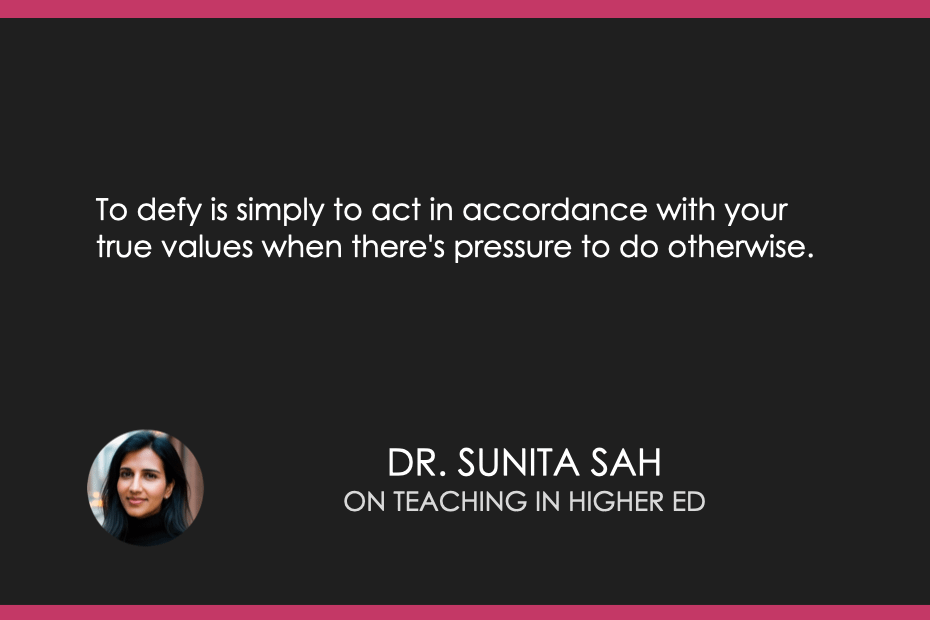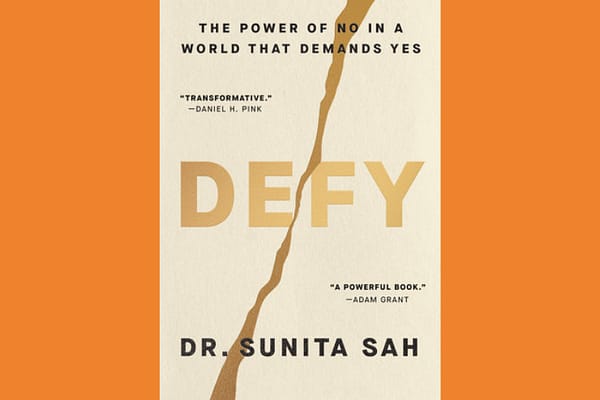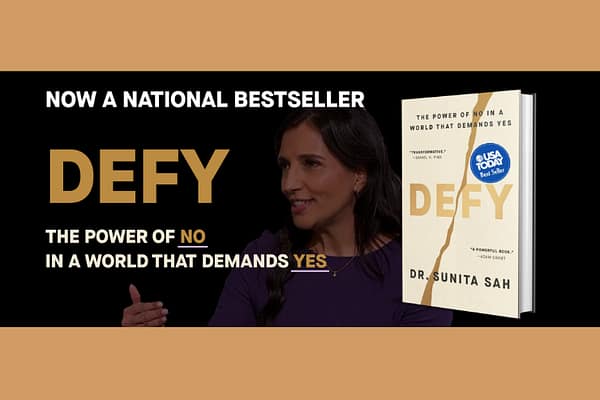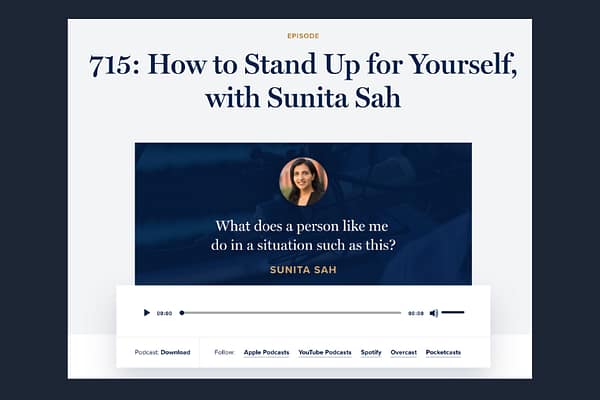Podcast (tihe_podcast):
Play in new window | Download | Transcript
Subscribe: Apple Podcasts | Spotify | RSS | How do I listen to a podcast?
Dr. Sunita Sah discusses her book, Defy: The Power of Saying No in a World That Demands Yes on episode 563 of the Teaching in Higher Ed podcast.
Quotes from the episode

Defiance is a practice, not a personality.
-Dr. Sunita Sah
Defiance is a skill that's available and necessary for all of us to use.
-Dr. Sunita Sah
For many of us, the distance between who we think we are and what we actually do is enormous.
-Dr. Sunita Sah
To defy is simply to act in accordance with your true values when there's pressure to do otherwise.
-Dr. Sunita Sah





